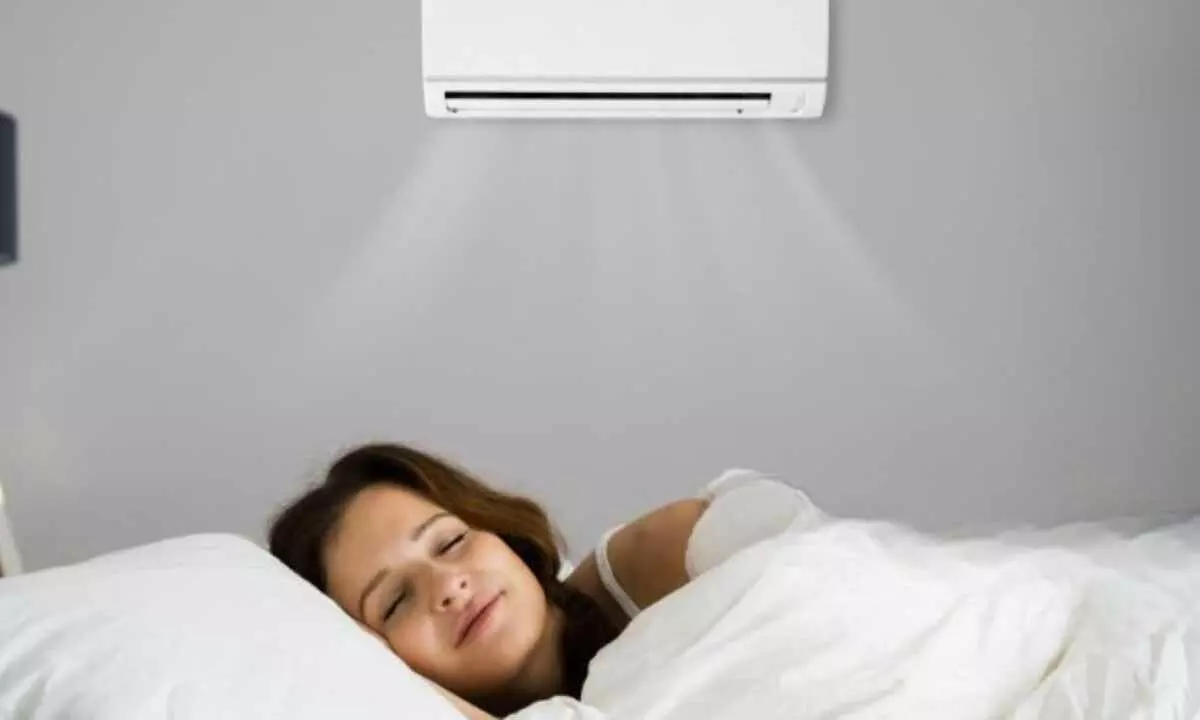Is Sleeping With AC On All Night Bad For You? Know The Hidden Health Effects

Sleeping in AC all night may cause fatigue, dryness, joint pain, and allergies. Learn smart tips to use AC safely
As temperatures soar across India, many people depend on air conditioners (ACs) for cool, comfortable sleep. However, keeping the AC on throughout the night may have unexpected health consequences. Here's a closer look at how overnight AC use can affect your well-being and what you can do to minimize the risks.
How Sleeping in AC Affects Your Health
1. Disturbed Sleep Patterns
Running the AC at very low temperatures can disrupt your natural sleep. Cold air may cause shivering or restlessness, breaking up your sleep cycle. In addition, ACs often circulate dust and allergens, which can worsen allergies and interfere with restful sleep. To improve sleep quality, consider turning off the AC during the night or using a moderate temperature setting.
2. Joint and Muscle Discomfort
Extended exposure to cold air can cause or aggravate muscle stiffness and joint pain. Those already dealing with arthritis or body aches may find their symptoms worsening. Using appropriate bedding and reducing AC usage can help ease this discomfort.
3. Higher Electricity Bills
Leaving your AC on all night leads to increased electricity consumption, resulting in high utility bills. Smart usage—such as setting a timer or switching off the unit during cooler parts of the night—can help cut down on energy costs and extend the lifespan of the appliance.
4. Reduced AC Efficiency
Frequently turning the AC on and off strains the system, reducing its efficiency over time and increasing maintenance needs. Consistent and balanced usage is better for both your health and the machine’s longevity.
Potential Health Risks of Overnight AC Use
1. Dry Skin and Eyes
Cold, dry air from air conditioners can sap moisture from your skin and eyes, leading to dryness, irritation, and itchiness. Keeping a humidifier in the room or using moisturizing products can help counteract these effects.
2. Increased Vulnerability to Illness
During sleep, especially between 4:00 AM and 6:00 AM when body temperature naturally drops, continuous exposure to cold air can lower immunity. This makes you more prone to colds, coughs, and respiratory issues.
3. Morning Tiredness and Dehydration
Sleeping in a sealed, air-conditioned room with no fresh air circulation can result in morning grogginess or fatigue. It can also lead to dehydration symptoms like dry mouth or throat. Ensuring adequate ventilation and staying hydrated before bed can make a significant difference.
Tips for Healthy AC Usage at Night
- Set a moderate temperature (around 24–26°C)
- Use sleep mode or timer functions
- Keep the room ventilated or slightly open a window
- Use a humidifier to balance moisture levels
- Maintain your AC regularly to prevent dust buildup
While air conditioners offer relief during scorching summer nights, using them wisely is key to avoiding health issues. By adjusting your AC habits and ensuring your sleep environment is comfortable but not overly cold or dry, you can enjoy both coolness and wellness.

